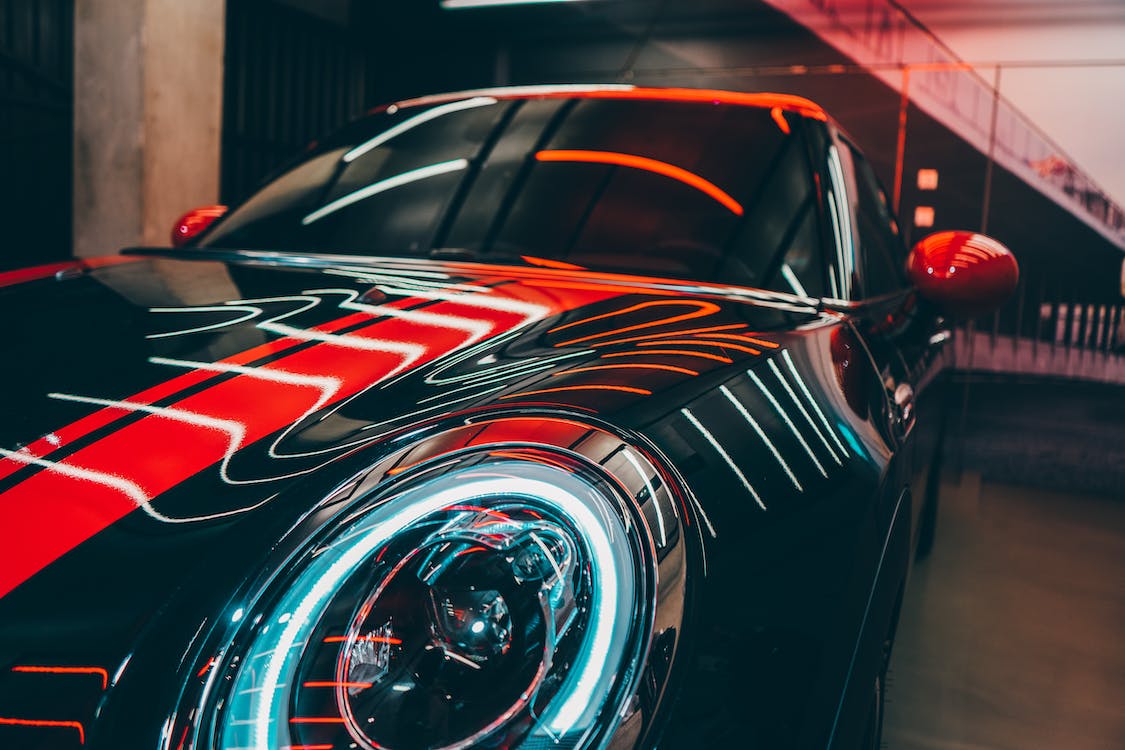Ensuring routine maintenance is an essential aspect of preserving your vehicle’s longevity and performance. Ignoring regular upkeep may result in costly repairs, decreased efficiency, and, in some cases, hazardous situations. With the multitude of components and systems to manage, determining where to commence can be daunting.
Simple tasks like checking your tire pressure to more involved maintenance like changing your oil will help you stay on top of your car’s needs and maximize its lifespan.
According to IHS Markit, the average age of light vehicles in the US is 12.1 years as of 2021. This age has increased by two months more than it was in 2020. If you are a seasoned driver or a new car owner, you need to know and follow a few simple tips for increasing the lifespan of your vehicle.
Seven essential tips are shared here to help you rev up your maintenance game and keep your vehicle running smoothly for years.
Regular Maintenance Tasks
1. Check and Change the Oil Regularly
The engine oil plays a critical role in lubricating the various moving parts of the engine while aiding in the dissipation of heat to maintain smooth engine operation. Regrettably, as time passes, the oil gradually deteriorates and loses its efficacy. It results in increased engine wear and reduced performance. Therefore, checking your oil level regularly and changing it at the recommended intervals is important.
According to ConsumerReports, the rule of changing oil every month or every 3,000 miles is now obsolete. This is because the engines and oils coming into the market have advanced from what they were a few years back. Thus, the oil changing time has increased to 7500-1000 miles or 12 months. The best rule for oil changing for your vehicle is to follow the instructions given in the manual and listen to what the manufacturers say about it.
It will keep your vehicle’s engine well-lubricated and well-performed. Regular oil changes will not only help extend the life of your engine but also improve fuel efficiency and reduce emissions.
2. Inspect and Replace the Air Filter When Necessary
The air filter plays a crucial role in safeguarding your car’s engine by preventing unwanted dirt, dust, and other pollutants from infiltrating the combustion chamber. Over time, however, the filter becomes obstructed by debris, resulting in restricted airflow and diminished engine performance.
A clogged air filter can also have a negative impact on fuel efficiency, leading to increased emissions. Therefore, it is crucial to replace the air filter when necessary to ensure optimal engine function and reduce emissions.
To avoid this, inspecting and replacing the air filter regularly is important. Most automakers recommend replacing the air filter every 15,000-30,000 miles, which can vary depending on driving conditions.
Regular air filter maintenance will not only help extend the life of your engine but also improve overall performance and reduce environmental impact.
3. Keep the Tires Properly Inflated and Rotated Regularly
Keeping your car’s tires properly inflated and rotated regularly is important for both safety and performance. Underinflated tires can lead to decreased fuel efficiency, uneven tire wear, and poor handling, while overinflated tires can cause a harsher ride and an increased risk of a blowout.
Rotating your tires helps to distribute the wear more evenly, extending their lifespan and improving overall performance. Most automakers recommend checking tire pressure monthly and rotating the tires every 5,000-7,500 miles.
In addition, periodic tire balancing and alignment are crucial for achieving optimal handling and reducing uneven tire wear. By keeping your tires in proper condition, you not only enhance safety on the road but also lower fuel consumption and minimize replacement expenses, making it a worthwhile investment.
4. Follow the Recommended Maintenance Schedule from the Manufacturer
A schedule from the manufacturer typically includes a list of tasks, such as oil changes, tire rotations, fluid checks, etc. It should be performed at specific intervals based on mileage and time, as it is crucial for maintaining your vehicle’s health and maximizing its lifespan.
Sticking to the schedule ensures that your car receives the necessary maintenance to keep it running smoothly and safely. Neglecting maintenance can lead to costly repairs, reduced performance, and safety hazards. It’s also important to keep records of all maintenance performed, which can help with resale value and warranty claims.
Additional Maintenance Tasks
5. Install a Bed Liner to Protect the Vehicle Bed from Damage and Rust
Installing a bed liner for trucks is a simple and effective way to protect your vehicle bed from damage and rust. Bed liners come in various materials, such as plastic, rubber, and spray-on coatings, and can be customized to fit your truck model.
They help prevent scratches, dents, and other damage caused by hauling cargo and water and moisture from causing rust and corrosion. Bed liners also make it easier to clean your vehicle bed, as they can be hosed down and wiped clean. By installing a bed liner, you can extend the life of your vehicle and maintain its resale value.
Scorpion has established itself as a dependable brand for bed liners. Their bed liners are known for their exceptional durability, longevity, and ability to provide superior protection to your vehicle bed. In addition to this, Scorpion’s bed liners are designed to withstand harsh weather conditions and resist damage caused by chemicals and abrasives, making them ideal for heavy-duty usage.
With a wide range of bed liner options, the brand ensures a perfect fit for every vehicle, and its products are customizable to meet individual needs.
6. Protect Your Vehicle’s Exterior with a Quality Wax or Sealant
Regularly waxing or applying a sealant to your vehicle is a vital upkeep task that can help retain its aesthetic appeal and market value. Wax or sealant acts as a barrier, shielding your car’s paint from external elements like UV rays, rain, and dirt.
This barrier helps to prevent fading, chipping, and corrosion, which can damage your car’s paint job and decrease its resale value. Applying wax or sealant twice a year is recommended, or more frequently if your car is frequently exposed to harsh conditions.
A quality wax or sealant will not only protect your car’s exterior but also give it a glossy and polished finish.
7. Keep the Interior Clean and Protected from the Elements
Keeping your car’s interior clean and protected from the elements is important for maintaining its value and overall appearance. Dirt, dust, and debris can accumulate inside your car and cause damage to the upholstery, carpets, and dashboard.
It’s recommended to vacuum and wipe down the interior surfaces regularly and use a protective spray to prevent fading and cracking. Getting your car washed on time is also recommended to keep it clean and maintained.
According to Grand View Research, with increasingly strict environmental regulations, home car washing is being prohibited. It has led to an increase in the demand for professional car wash services.
As of 2021, the market value for these services was estimated to be USD 29.3 billion, and it is projected to grow at a compound annual growth rate of 3.1% from 2022 to 2030. It is highly recommended to leverage these services to prolong the lifespan of your vehicle.
Keeping your car’s interior clean and protected can improve your driving experience and maintain its value for years.
Conclusion
Regular maintenance is crucial to keep your vehicle running smoothly and efficiently. Following these seven tips can boost your vehicle’s lifespan and save money in the long run.
Performing routine maintenance, such as checking fluid levels, changing oil, and inspecting brakes, can help identify and fix small issues before they become bigger problems. Moreover, choosing quality parts and products, adhering to manufacturer recommendations, and keeping your vehicle clean can also significantly affect your car’s performance and longevity.
Remember, your car is a significant investment, and investing time and resources in maintenance can help you avoid costly repairs and extend its lifespan.







